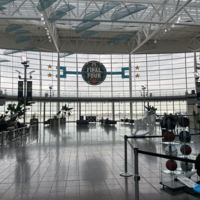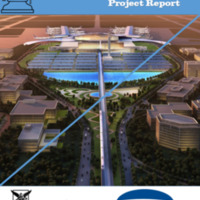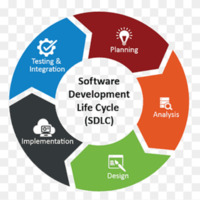Browse Exhibits (4 total)
Andrew Rattin, Austin Gustin, Cade Clinton, Alison Vielee, David Mitchell | Indianapolis International Airport Pre-Security

Cardinal Consulting, our capstone team, has been working with the Indianapolis International Airport to create a solution in response to COVID-19. The airport, like many other businesses, has undergone changes due to the COVID-19 pandemic. The problem that needs to be solved is that pre-security has not effectively demonstrated safe health practices to alleviate current and future passenger apprehension.
Faculty Mentor: Fred Kitchens
Information Systems and Operations Management
Undergraduate
Jared Scheurich, Phil Belpasso, Corby Mertens, Conner Somers, Dakota Hand, Jamie Gonzales | Navigating Through the Post-COVID Airport

Like every transportation company around the world, the Indianapolis International Airport is trying to mitigate the difficulties that COVID brings. Specifically, the airport is trying to improve their wayfinding and COVID policy communication for their guests. The current signage has proved to be cluttered and guests are still unsure about where to go at times. Guests have expressed that they are not necessarily worried about the airport being sanitary but more about other guests spreading COVID. This team of consultants is helping the Indianapolis International Airport solve their problem with insufficient wayfinding techniques as well as providing an effective way to communicate new COVID policies to their guests. The System Development Lifecycle was followed, using the Phase-Gate technique. This process included working with the airport and developing multiple documents and charts to help formulate the optimal solution. These documents include a Root Cause Analysis Diagram, Business Process Models (As-Is and To-Be), and full feasibility analysis. The team meets with the airport monthly to discuss about information that could be helpful to the decision-making process. A multiple-criteria decision analysis is used to decide which alternative would be best for the airport by comparing weighted scores for each possible solution. Once the optimal solution is selected, the implementation process will begin. A complete implementation plan will be developed including conversion training, maintenance, and post-implementation review.
Faculty Mentor: Dr. Fred Kitchens
Information Systems and Operations Management
Undergraduate
Jason Craft, Brian Faust, Sloan Luebbert, Daniel Hochstetler, Keung Wong | The Future of Airport Security: How Covid-19 is Affecting the Indianapolis International Airport

Under current Covid-19 circumstances, the Indianapolis International Airport (IIA) saw its operations reduced by 60% of its capacity, which increased the cost-per-passenger of the security process by 600%. Due to the lockdown, business travelers substituted in-person meetings for video conferencing and leisure travelers avoided flying. Despite the low passenger rates, the security checkpoint became a bottleneck for congestion, making the area susceptible to Covid-19 transmission. The problem for the airport security process is balancing social distancing and CDC guidelines while keeping passengers physically secure.
Over two semesters this project utilized the System Development Life Cycle, following the Waterfall Method. The Planning Phase requires root cause and feasibility analysis, including technical, operational, and economic feasibility. To comprehend the current state of operations, the Analysis Phase utilizes supplemental industry analysis, As-Is system process modeling, system requirements diagrams, and success criteria. The Evaluation of Alternatives Phase features the generation of alternative solutions ranging from faster screening technologies to layout re-design to a TSA Pre-Check incentive program. In the Design Phase, an alternative is selected based on the weighted evaluation matrix chosen by the client. The solution is further refined with To-Be process modeling.
The project executes the solution in the Implementation Phase, which includes a conversion plan, maintenance plans, and a cost-benefit ratio for the client. The Post Implementation Review has a final review of success criteria and an exit strategy. The IIA is the leading-edge airport in its class for innovation and customer satisfaction. This project aims to satisfy those high standards.
Faculty Mentor: Dr. Fred Kitchens
Miller College of Business
Undergraduate
Joel Reiners, Alana Pinckley, Nathan Wildman, Jullian Thomas, Dylan Bramlett | Safe Arrivals in a Post-COVID-19 Environment

